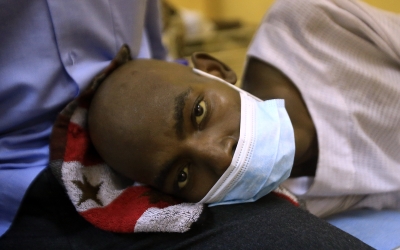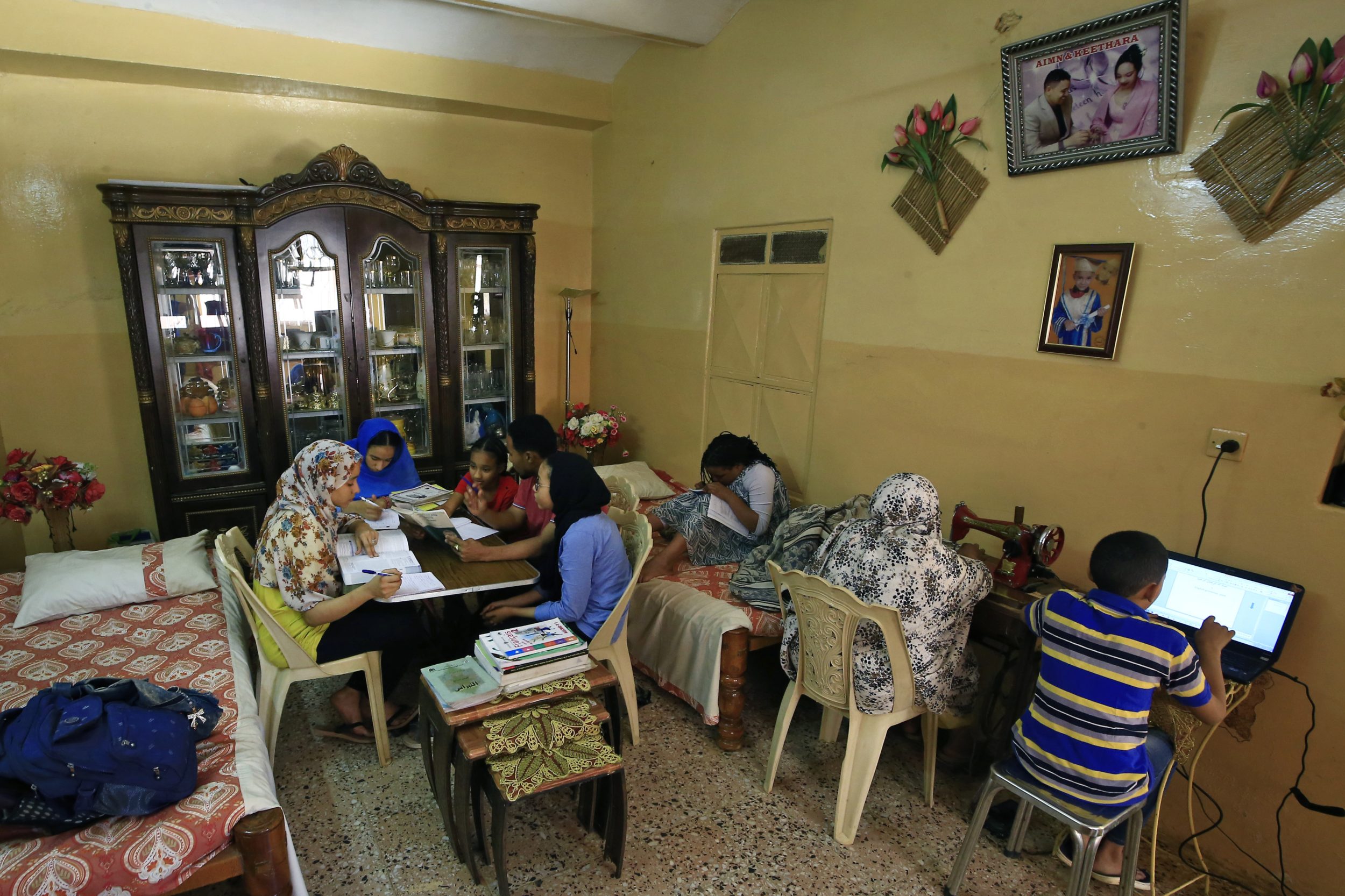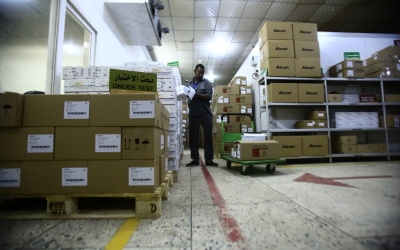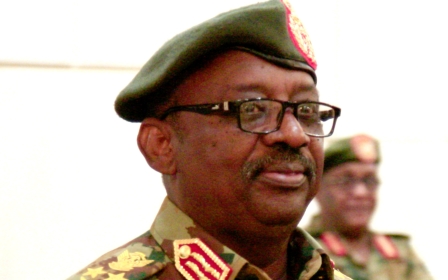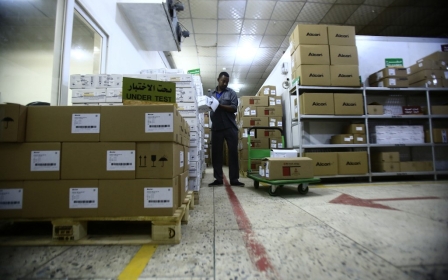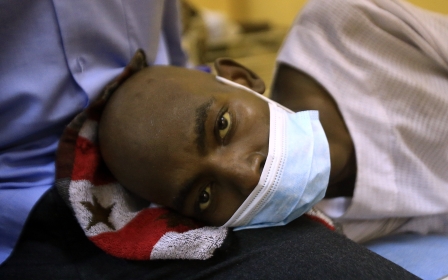Coronavirus: In Sudan, confusion reigns as hundreds escape quarantine centres
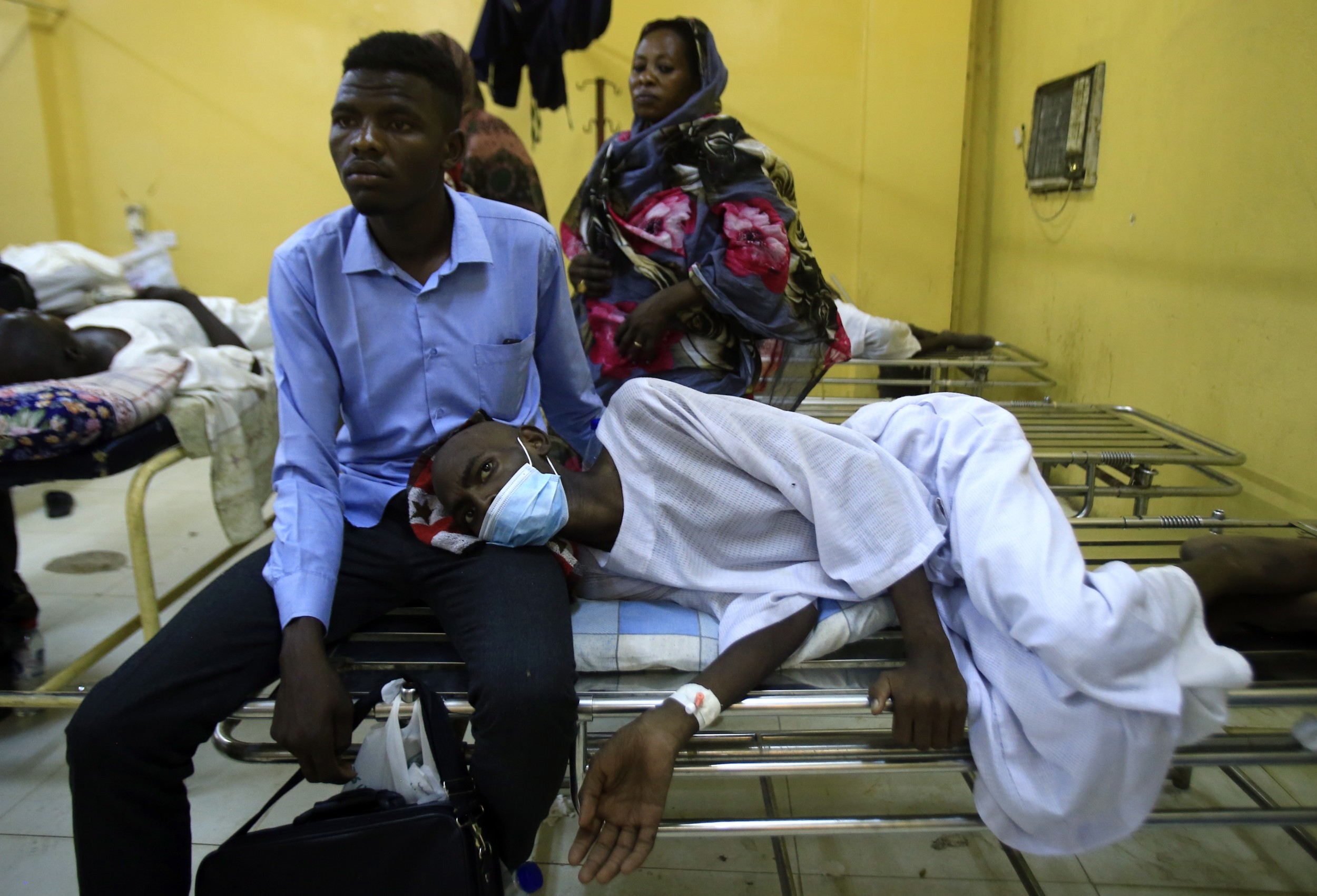
Hundreds of Sudanese have reportedly refused medical supervision across the country amid the ongoing coronavirus pandemic, as restrictive measures used to curb the spread of the disease in the country have been met with resistance and apprehension.
The threat of coronavirus - officially known as Covid-19 - is getting serious, as Sudan recorded one death from the virus and two other confirmed cases, according to announcements made by the Ministry of Health.
New MEE newsletter: Jerusalem Dispatch
Sign up to get the latest insights and analysis on Israel-Palestine, alongside Turkey Unpacked and other MEE newsletters
The high ministerial committee to fight the coronavirus - which includes the ministries of health, interior and information - decided earlier this month to use force to subject at-risk individuals to testing or quarantine.
A number of measures were put in place - including the closure of the country’s international airport, and the cancellation of all political, social, cultural and sporting events.
But at least 300 people have since reportedly fled quarantining centres that were opened to isolate Sudanese returning from travelling abroad.
For many Sudanese affected by or suspected of having the disease, the imposed measures have been deemed arbitrary and inadequate - as health experts warn that the country should brace itself should Covid-19 spread.
Clashes at isolation centres
Medical sources and eyewitnesses have told Middle East Eye that hundreds of individuals - both believed to be sick with Covid-19 or under observation after recently travelling abroad - had fled hospitals and isolation centres in the past week.
A doctor working with teams on the ground in Khartoum - who asked not to be named - told MEE that suspected cases had escaped from the Universal Hospital and Ibrahim Malik Hospital in the Sudanese capital.
'We are witnessing many cases where people reject the tests or being put in isolation. Some of them even escaped the isolation centres'
- Sudanese doctor
“We are witnessing many cases where people reject the [coronavirus] tests or being put in isolation,” the doctor stated. “Some of them even escaped the isolation centres. This is serious and authorities, as they had warned, have had to use force to prevent people from escaping.”
Another doctor working for the Central Committee of Sudanese Doctors - which is part of the Sudanese Professional Association (SPA) that led the 2019 protests against then-President Omar Bashir - confirmed that the majority of people who left isolation centres had recently returned from Egypt, where more than 300 cases have been confirmed.
“We knew that thousands of people had returned from Egypt, and the majority of them haven’t been subjected to 14 days of isolation,” the doctor, who also requested anonymity, told MEE. “Two buses carrying more than 100 people coming from Egypt refused isolation and the police couldn’t stop them at Argeen border crossing.”
Eyewitnesses told MEE that a confrontation broke out between police forces and quarantined individuals on 18 March at an isolation centre that opened earlier this month in Bahri, Khartoum’s twin city.
Tilal, a resident of the Kober neighbourhood near Universal Hospital, told MEE that he saw hundreds of people fighting with police that night as they attempted - and succeeded - to exit the hospital.
“There was huge chaos, people refused to stay in the isolation centre and even clashed with the police when they tried to prevent them from leaving,” he told MEE.
'We are facing a serious situation so we need in-depth cooperation between the authorities and the people'
- Alfatih Osman, director of the Khartoum state health directorate
Speaking exclusively to MEE, the head of the health directorate of the state of Khartoum, Alfatih Osman, denied that people were fleeing the isolation centres, but admitted that a number of them were not cooperating with health authorities.
He said that the number of quarantined cases in the country stood at 54 in all, adding that they were spending 14 days in isolation in different hospitals and isolation centres.
“I can’t say that definitely none has escaped, but we don’t officially have an issue like this,” he stressed.
“We are facing some difficulties because some Sudanese are rejecting the quarantine, so I honestly asked the people to change the habits that may push them to do that."
Why are people refusing quarantine?
But why have hundreds of Sudanese categorically refused to go into quarantine?
One of those who escaped from the isolation centre in Bahri, Ahmed Abdul Azim, told MEE that he had been screened at the Argeen border crossing, where he was told he was at risk. However, Abdul Azim said he decided to flee the centre as it was not adequately prepared to receive patients - citing shortages of medical personnel, food and protective gear.
“You can’t ask the people to stay when you didn’t prepare the places well,” he told MEE over the phone.
A number of Sudanese who were sent back from Saudi Arabia in mid-March have also refused to enter quarantine centres, one of them told MEE.
Magda Ibrahim said she had been on a passenger ship heading to Saudi Arabia, but was forbidden to disembark by Saudi health authorities, forcing the ship to turn back.
“When we got back [to Sudan] part of the people refused to be subjected to quarantine by health authorities in the Red Sea district as we never got off the ship,” Ibrahim said.
The Ministry of Health said in a statement that more than 1,000 Sudanese have returned from Saudi Arabia via Port Sudan. It confirmed that the passengers had all tested negative for the coronavirus and were subsequently released.
“We are facing a serious situation so we need in-depth cooperation between the authorities and the people,” Osman, the Khartoum health official, urged.
Osman recommended that residents of Sudan adopt at-home isolation in order to slow the spread of Covid-19 and not overload hospitals.
But he conceded that the practice - implemented widely in many other countries dealing with the virus - was not as easy to impose in Sudan, due to economic and social factors.
“Sudanese habitually don’t stay at home, especially the men,” he said. “Poverty is also an important factor, as a lot of the population needs to go out to work.”
He went on to recommend the implementation of a curfew, “especially given the resistant attitude by some citizens”.
Accusations of mismanagement
On the opposite end of the spectrum, earlier this month some 10 relatives said they were prevented from getting tested for coronavirus or being isolated in a hospital for several days in spite of their requests.
The individuals all belong to the extended family of Faisal Alyas, the first person in Sudan to have succumbed to the coronavirus following a visit to the UAE, a death made public on 11 March.
Mohamed Ali, one of Alyas’ nephews, alleged to MEE that his family has been neglected by Sudanese authorities.
“The ministry has treated us in a very careless way,” the university professor said. “We were dealing with the situation in a very positive way. Faisal Alyas even went himself to the quarantine [centre] before he died.
"We asked the ministry to come and subject us to the right measures of testing, monitoring and even quarantine but they didn’t for over three days.”
The Ministry of Health for its part has denied the family’s claims, alleging that Alyas’ older brother had initially denied that the cause of death was coronavirus and refusing to be tested, before other relatives came forward.
The ministry went on to add that the families had all tested negative, but that Alyas’ wife and father remained in isolation centres.
For Sudanese medical expert Abdelmalik Elhadia, despite the country’s collapsed and mismanaged health care system, the coronavirus pandemic has yet to reach the same worrying proportions as elsewhere in the world - which he attributed to the disease not being indigenous to the area.
“Due to the already collapsed health system and lack of preparations, the isolation centres were not ready nor comfortable for the stay of suspected cases or those under observation,” he told MEE.
The problem in Sudan, he added, was “not how to conduct the isolation, but how to manage the few resources that we have”.
Osman concurred.
“We inherited a very deteriorated health system, so our situation is really fragile,” the health official said. “We can only overcome this situation with cooperation.”
Elhadia called upon Prime Minister Abdallah Hamdok to intervene and lead the entire government’s efforts in order to guarantee the full coordination and exploitation of Sudan’s resources - medical staff, medicine and economic resources - in combating the disease.
“We see that very rich countries like the UK and others are in trouble over the preparations of the health facilities to contain the pandemic, so we have to understand that Sudan may face a big dilemma if we don’t manage resources well,” he added.
This article is available in French on Middle East Eye French edition.
Middle East Eye delivers independent and unrivalled coverage and analysis of the Middle East, North Africa and beyond. To learn more about republishing this content and the associated fees, please fill out this form. More about MEE can be found here.


